#O'Higgins
Explore tagged Tumblr posts
Text

Medialuna de Rancagua, Rancagua, Chile: Medialuna Monumental de Rancagua, also called Medialuna Nacional or Medialuna Monumental de Rancagua Gonzalo Vial Vial, is a sports complex for the practice of Chilean rodeo, a national sport of the country. It is located in the city of Rancagua, Chile. Wikipedia
163 notes
·
View notes
Text

Cristo-
15 notes
·
View notes
Text





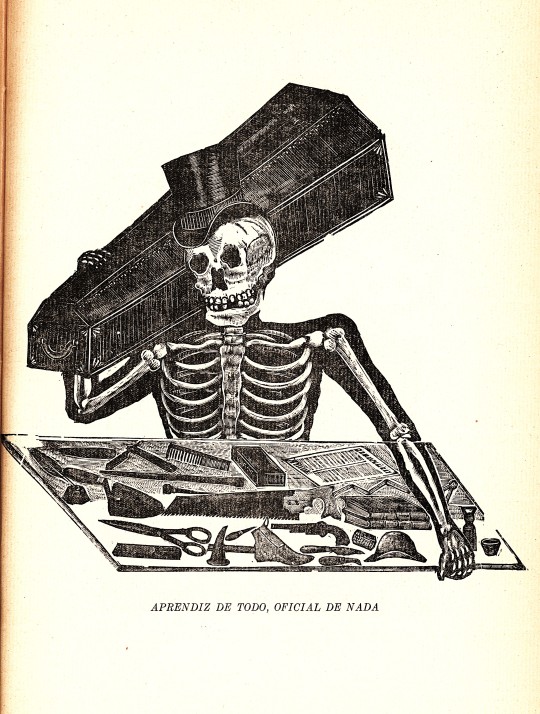

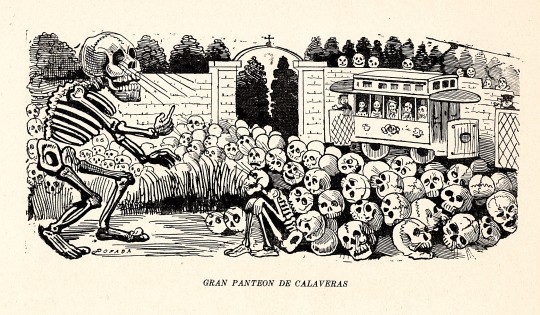

Dia de los Muertos 2024
We commemorate Dia del los Muertos with woodcuts by the Mexican printmaking satirist José Guadalupe Posada Aguilar (1852-1913) from the 1930 publication Monografía: Las Obras de José Guadalupe Posada, grabador mexicano, edited by American ethnographer Frances Toor (1890-1956), American Mexican artist Paul O'Higgins (1904-1983), and Posada's contemporary and colleague Blas Vanegas Arroyo (1852-1917), with an introduction by the prominent Mexican artist Diego Rivera (1886-1957), published in Mexico City by Mexican Folkways.
Calaveras and calacas are closely associated with Day of the Dead celebrations, and this Posada monograph contains many examples.
View other posts with works by Posada.
View other Dia de los Muertos posts.
#Dia de los Muertos#Day of the Dead#holidays#José Guadalupe Posada Aguilar#José Posada#j. g. posada#Posada#Monografía: Las Obras de José Guadalupe Posada#woodcuts#Frances Toor#Paul O'Higgins#Pablo O'Higgins#Blas Vanegas Arroyo#Mexican Folkways#calaveras#calacas#skulls
267 notes
·
View notes
Text
This blue velvet gown is worn on Justine Waddell as Tess Durbeyfield in Tess of the D'Urbervilles (1998) and many years later worn on Eileen O'Higgins as Nancy Vickers in Dead Still (2020)


#recycled costumes#Tess of the D'Urbervilles 1998#justine waddell#tess durbeyfield#dead still 2020#eileen o'higgins#nancy vickers#costume drama#period drama#reused costume#reused costumes#perioddramaedit#perioddramasource#dramasource
7 notes
·
View notes
Text
honest question, do you have a historical figure that everyone hates but you love? or that no one knows? I'll start: -Charles VI of France, ok he destroyed France during the 100 years war…ok he gave the crown of France to the English king…but he was just crazy… -George IV of the United Kingdom…yes I can understand that people don't like him…but I find him too interesting to be hated
in fact I mostly have characters that no one knows… -Anne of Austria, it's not that people don't like her it's that she's underrated, I think she was really an interesting queen with a crazy story! -d'Artagnan, we stay in the same period as Anne of Austria for the same reason, people only know him through the book The Three Musketeers by Alexandre Dumas…it's a shame but if this book had never existed we would have probably forgotten it -Berndardo O'Higgins, I just got interested in the liberators of South America because of a work in Spanish, many of them are known especially Simon Bolivar…and not many know my little Bernardo…😢 -Charlotte of Wales, after the father the daughter, in fact she is the same not many people know her, I think she could have made a superb queen. and I could continue like this for a long time
(i can also do it with the historical figure i don't like)
#history#anne of austria#charles vi#george iv#charlotte of wales#bernardo o'higgins#d'artagnan#hundred years war#19th century#1800s#napoleonic era#17th century
5 notes
·
View notes
Text
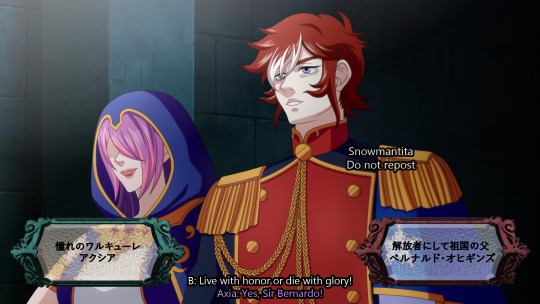
🦢⚔️ 𝐁𝐞𝐫𝐧𝐚𝐫𝐝𝐨 𝐎'𝐇𝐢𝐠𝐠𝐢𝐧𝐬 𝐚𝐧𝐝 𝐀𝐱𝐢𝐚 ⚔️🦢
A new round is about to start. The Chilean liberator and father of the fatherland, Bernardo O'Higgins appears in Ragnarok together with the Valkyrie Axia, their personalities will put together a harmony that in the name of humanity will give all of themselves to overcome once again the gods in this endless fight.
Axia belongs to @trivializetriven
#bernardo o'higgins oc#bernardo o'higgins record of ragnarok#bernardo o'higgins shuumatsu no valkyrie#record of ragnarok oc#shuumatsu no valkyrie oc#axia oc#axia record of ragnarok#axia shuumatsu no valkirie
33 notes
·
View notes
Photo
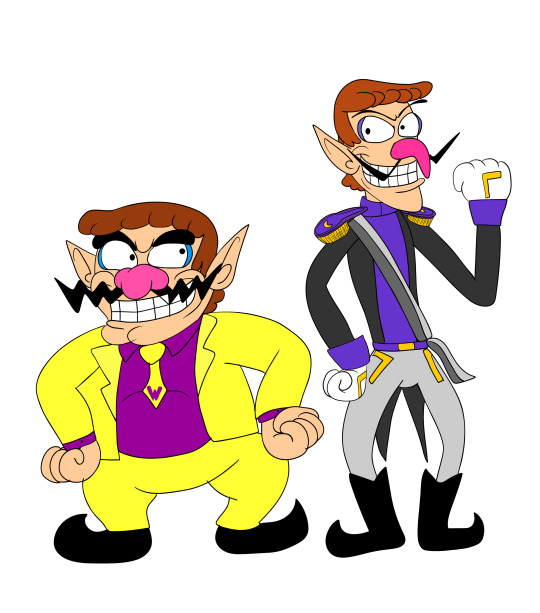
Wario Bros. rules
#PreciousSkipy#Skipy the Dog#skipythedog#Wario#Waluigi#Super Mario#Wario Land#business Man#bernardo o'higgins#fanart
10 notes
·
View notes
Text

Jó nagyot utazunk megint, irány Dél-Amerika, méghozzá a szép hosszú Chile! Elképzelésem sincs, hogy került a családhoz ez a bélyeg, ráadásul postatisztán, lehet valami cserebere útján. Mindenesetre nagyon szép állapotban van, és több mint 50 éves! 1972-ben adták ki, és ez is egy évfordulóra készült, alkalmi bélyeg a Bernardo O'Higgins Katonai Akadémia megalapításának 150. évére. Az címlet 1,15 escudo, annyiban érdekes, hogy ez a pénznem mindössze 15 évig volt használatban Chilében, 1960 és 1975 között. Azért vezették be mert a peso elértéktelenedett/elinflálták, így 1960-ban a bevezetéskor 1000 (régi) peso volt egy escudo, de aztán visszatértek hozzá és kibocsátásra került egy újravalidált, ��j chilei peso, azóta ez van már használatban. Mindennek ellenére ez egy elég értéktelen bélyeg, még így tisztán is, majdnem tízmilliót nyomtak belőle, 50 forintért már hozzá lehet jutni ilyen postatiszta példányhoz. Ellenben szerintem jól néz ki!
Bernardo O'Higgins Riquelme egy igen fontos alakja a chilei történelemnek, ugyanis a Chilei Függetlenségi Háborúban ő szabadította fel az országot a spanyolok uralma alól. Ennek folyományaként ő volt az ország második Legfelsőbb Kormányzója olyan hét évig 1817-1823 között, és bár volt elődje, mégis a chilei állam egyik alapítójaként tartják számon, mivel ő viselte először ezt a címet a teljesen független ország élén. A katonai akadémiát 'uralkodása' első évében alapította meg, már csak azért is mert az ország különböző területein kisebb intenzitással egészen 1826-ig zajlottak még harcok a spanyol kolonizálókkal. 1823-ban egy szövetségese megpuccsolja és átveszi a hatalmat, ráadásul száműzi is egyúttal (ilyen diktátor ember lett nyilván). Ezekután Peruban él és tevékenykedik az ottani felszabadító háborúkban. Végül 1842-ben térhet haza, de elég tragikus módon épp a nagy utazás közben elkezd rendetlenkedni a szíve, és orvosa tanácsára visszatér végül Limába. Itt éri a halál, 64 éves korában.
#bélyeg#stamp#chile#1972#bernardo o'higgins military academy#escuela militar bernardo o'higgins#1.15 escudo
5 notes
·
View notes
Text

Pichilemu, Chile: Pichilemu is a holiday town with beaches in Central Chile and capital of Cardenal Caro Province in the O'Higgins Region, south of Valparaíso. Pichilemu is a crossbreed of a sleepy fishing village and an international surf destination. Pichilemu is not quite on the Gringo Trail, but visitors from Chile and abroad quickly take to this rapidly growing town. Wikipedia
110 notes
·
View notes
Text
TV Show Review: The Irregulars

Source: Google Images
A crew of misfits investigates a series of supernatural crimes in Victorian London for Dr. Watson and his shadowy associate, Sherlock Holmes.
Source: Netflix (2021)
youtube
Cool Concept but Poor Execution
Before getting into The Irregulars, I really did not know it was a supernatural twist to the classic Sherlock Holmes. So, imagine my surprise when I watched episode 1 and suddenly the screen focused on the door labelled '221B Baker Street'. Of course, then I expected a very Sherlock Holmes-y TV show but nope, that expectation was far from it.
Yes, we still get Sherlock Holmes but due to certain events in his past, he has succumbed to the opium addiction. Which personally, I liked seeing because one, it showed a "kind of accurate" depiction of history during that time. And two, it showed a side of Sherlock we rarely see, one whose judgment is more wrong than right and not nearly as perfect as media likes to portray him. We also obviously got John Watson and I am a bit conflicted with his character in The Irregulars. I love John Watson no matter which adaptation I am watching but there was a time in The Irregulars where I felt so bored by him. I thought the writing for this show's John needed to be better, there was no John Watson essence in this version at all. Moreover, the plot twist(s) in his character arc was so predictable, nobody can convince no one saw what was coming.
Of course, because this is a retelling of Sherlock Holmes (older and with a supernatural twist), there are a lot of crime investigation by a group of children who finds themselves linked to Sherlock and John in some ways. I will be critically honest here, if there was no supernatural twist at all, I would have hated The Irregulars – the children investigating the cases were not fun to watch at all. Bea despite being the oldest is perhaps one of the most flawed person in the group, other than her age what or who made her the leader? Without Jessie, the group is pretty much useless in solving all their cases and worst of all, we barely got anything about her powers. Billy, though a hothead, is probably more clear minded and fitted to lead the group more than Bea. Maybe Billy is more brawn than brains but I still think he can lead the group; he can be objective when he needs to be. As for Leo, after Jessie, he's definitely the second most useful member of the group yet the amount of bullshit he goes through with his family and this group of children? What does he see in his friends? Last but not least, my favourite, Spike was done so dirty by making him so unimportant. There was a scene where the group fell apart and eventually came back together just because Spike worked the hardest for that to happen. He called himself the skeleton of the group but I feel that, he's the glue that keeps them together and without him, the group will cease to exist.
Moving on, can you believe that I enjoyed the filler cases over the main issue driving this show? The filler cases had more action and way more crime-solving bits. The main issue was a huge disappointment just like the big bad villain. I mean, who did not see the villain's twist, it was so bloody obvious since the first appearance. On the brighter side though, I am very glad the production team did not go down the route where they made Alice a villain. That episode was underwhelming but at least Alice did not hit all my predictions.
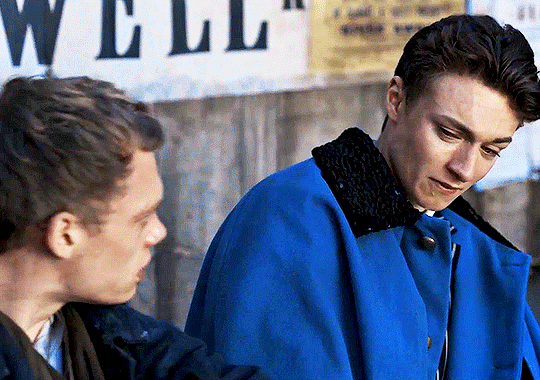
Considering there is no season 2 to this TV show, there is no point in me furthering this review. However, I know I would have enjoyed the children working together with John as a team with a friendlier relationship.
Rating: ★★★☆☆ (3.5/5)
P.S.: Help, why was The Irregulars so dark? Even my brightest setting was not enough.
#tv show review#the irregulars#sherlock holmes#john watson#bea#jessie#billy#prince leopold#spike#linen man#alice#henry lloyd-hughes#royce pierreson#thaddea graham#darci shaw#jojo macari#harrison osterfield#mckell david#clarke peters#eileen o'higgins
2 notes
·
View notes
Text
youtube
#dead still#nancy vickers#conall molloy#kerr logan#eileen o'higgins#19th century#myedit#it's such a shame this was cancelled :( but they'll forever be my otp ♥#Youtube#irish
1 note
·
View note
Text

"I am Adolfo Pirelli
Da king of da barbers
Da barber of kings
E buon giorno, good day
I blow you a kiss!"
Next Sweeney Todd character is Pirelli/ Daniell O'Higgins! Like I did with male characters of the show, I use various daguerrotypes and fashion plates.
0 notes
Note
I just wanted to know when the next Character sheet will be posted, I like reading them and looking at the art :)
Hi nonny! ✨️
At the moment I don't know when I'll be able to publish them because I'm a bit busy with a commission/art trade as well as redesigning both my Hypmic and RoR Ocs and writing as much as I can in their respective profiles but I offer you this WIP of my Oc Bernardo O'Higgins ❤️💙

#wip#work in progress#sketch#my art#record of ragnarok oc#shuumatsu no valkyrie oc#bernardo o'higgins oc#shuumatsu no valkyrie#record of ragnarok
10 notes
·
View notes





